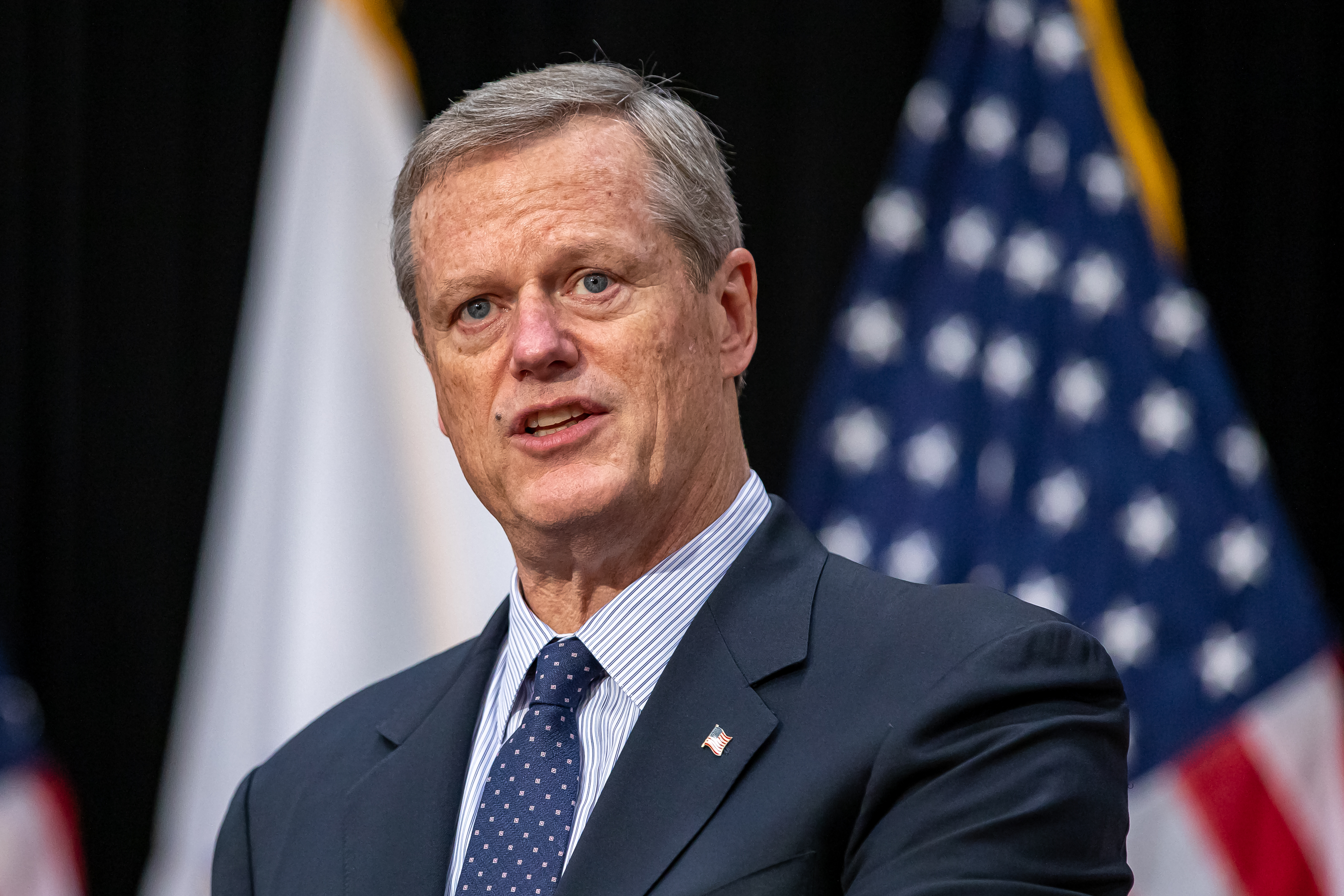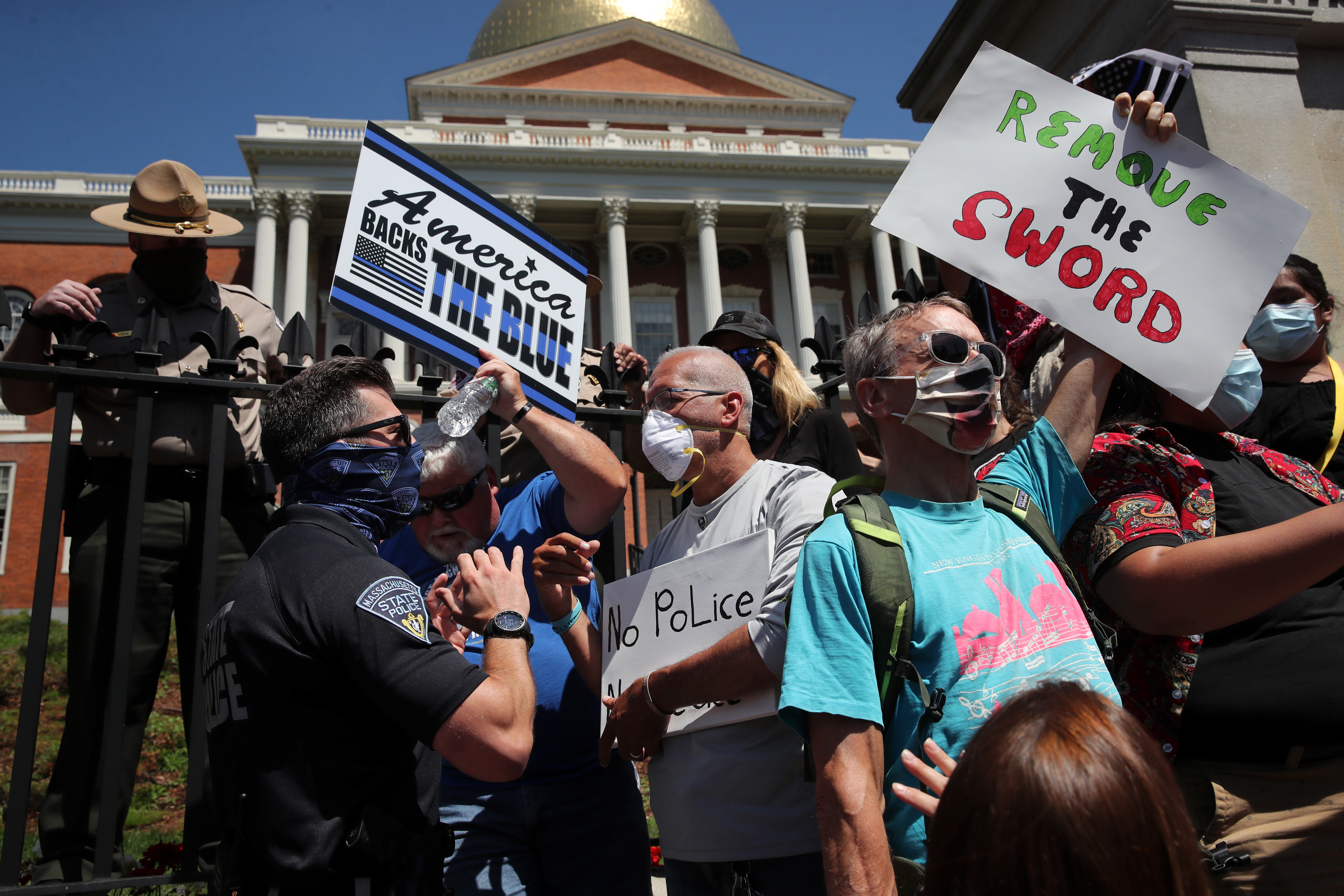Gov. Charlie Baker has one week, until Friday, Dec. 11, to decide what to do with the 129-policing accountability bill that the Massachusetts Legislature sent him Tuesday night.
The bill passed without the support of a single GOP lawmaker -- all 35, four in the Senate and 31 in the House, voted against it, as did unenrolled Rep. Susannah Whipps -- so eyes are now on the Republican governor, who filed his own police certification bill in June, for his decision.
Baker could sign the bill, veto it, return it to lawmakers with an amendment or let it become law without his signature by waiting out the 10-day review period.
The bill, the product of four months of conference committee negotiations, proposes a nine-member, majority civilian police standards and training commission that differs from the 14-person, half-civilian commission in Baker's legislation.
The compromise policing reform bill includes several other measures, notably language removing qualified immunity protections in cases where an officer's actions result in decertification by the oversight board. It also creates standards for the use of force, bans chokeholds, limits no-knock warrants, expands juvenile record expungement eligibility, makes it a crime for a law enforcement officer to knowingly submit a fraudulent timesheet, allows the state police colonel to be appointed from outside the department, restricts the use of facial recognition technology, prohibits law enforcement officers from having sexual intercourse with a person in custody, and creates a host of new special commissions and task forces to study other issues.
Sen. Sonia Chang-Diaz, one of the six conferees, launched an online letter-writing campaign urging Baker to sign the bill as it is written, and leaders of civil rights and faith groups have also been calling for him to approve it.
Meanwhile, the Massachusetts Coalition of Police had said its members would "lead the way in appealing to Governor Baker to veto this bill," and the State Police Association of Massachusetts said the legislation "misses the mark." The House's 92-67 vote to accept the conference report fell short of the two-thirds majority that would be required to override a gubernatorial veto, and the Senate only barely cleared that threshold with a 28-12 vote.



